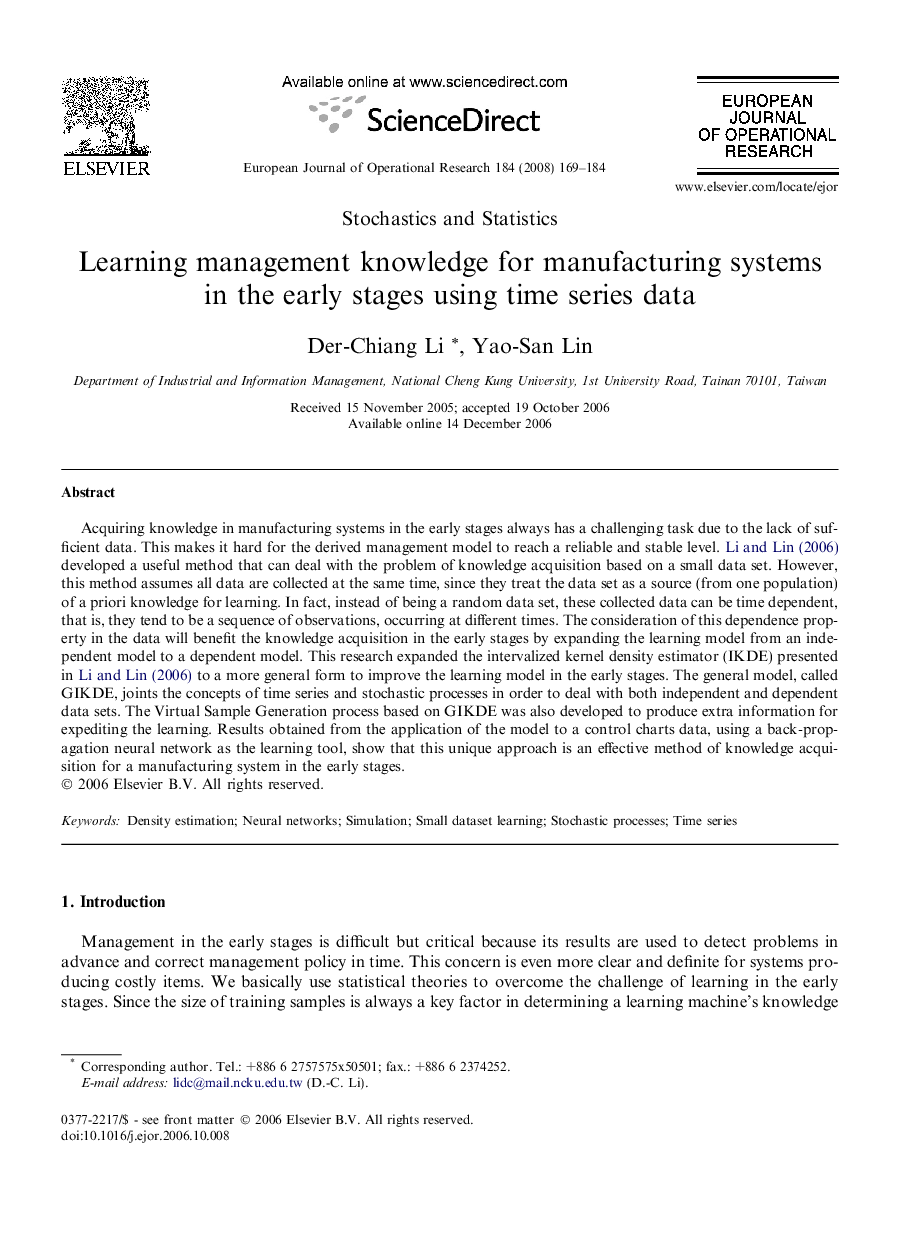| Article ID | Journal | Published Year | Pages | File Type |
|---|---|---|---|---|
| 479010 | European Journal of Operational Research | 2008 | 16 Pages |
Acquiring knowledge in manufacturing systems in the early stages always has a challenging task due to the lack of sufficient data. This makes it hard for the derived management model to reach a reliable and stable level. Li and Lin (2006) developed a useful method that can deal with the problem of knowledge acquisition based on a small data set. However, this method assumes all data are collected at the same time, since they treat the data set as a source (from one population) of a priori knowledge for learning. In fact, instead of being a random data set, these collected data can be time dependent, that is, they tend to be a sequence of observations, occurring at different times. The consideration of this dependence property in the data will benefit the knowledge acquisition in the early stages by expanding the learning model from an independent model to a dependent model. This research expanded the intervalized kernel density estimator (IKDE) presented in Li and Lin (2006) to a more general form to improve the learning model in the early stages. The general model, called GIKDE, joints the concepts of time series and stochastic processes in order to deal with both independent and dependent data sets. The Virtual Sample Generation process based on GIKDE was also developed to produce extra information for expediting the learning. Results obtained from the application of the model to a control charts data, using a back-propagation neural network as the learning tool, show that this unique approach is an effective method of knowledge acquisition for a manufacturing system in the early stages.
